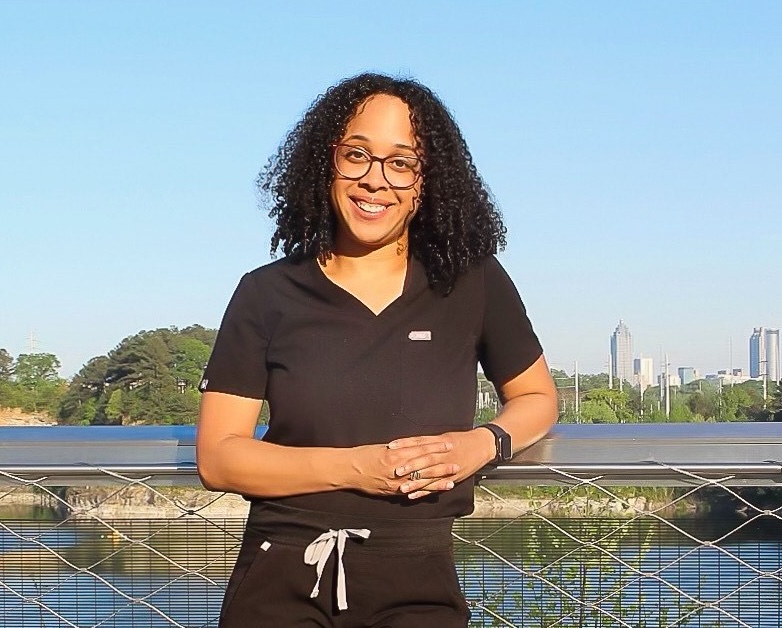Scaling an emerging technology company can be challenging for founders, especially as technology rapidly shifts and hype cycles materialize often. As they work to build and grow their companies, founders may face the pressure of staying ahead in a fiercely competitive market.
Dr. Justin Barad, founder and chief strategy officer at virtual-training company Osso VR, sat down with MobiHealthNews to provide tips on scaling for success and effectively navigating the investment market for companies using emerging health tech to ensure longevity.
MobiHealthNews: How has the emergence of AI affected funding for extended reality companies?
Dr. Justin Barad: Whether you're talking with healthcare institutions or enterprises, they have mandates to make investments in direct, generative AI technology.
The kinds of conversations we have today are like, "We have a huge problem as an organization, and we need this solution, but our strategic priority ..." and there's no real purpose to it, but it's like, "Everyone is making generative AI investments, so we have to do that right now." So, it's kind of interesting.
I do think that there is going to be a bit of a bubble. There are some incredible use cases, but some of this stuff is just not going to pan out.
Two things I think XR [extended reality] is doing is solving a really important problem in providing significant value in terms of cost savings per patient, and outcomes, and even driving revenue for organizations.
If you look at any of these [XR] technologies, it is similarly, if not more so, miraculous. It's like, why wouldn't we be using it in our space? Anytime anyone tries the technology, they're like, "Why would you train any other way?" So, I think it's just a brief pause to give everyone a moment to process what's happening in the AI world.
I do think, though, that [some of these companies] are not in a strong business position. For some of the companies, you're seeing people either have to sell off or close up shop. It's a sad, scary time in the space, since there's just not a lot of oxygen there. But for companies that are established and set themselves up well, it's actually a really great period of time for us to get even more efficient and innovative.
So, I'm really excited. I'm really bullish about this space, but some companies are definitely being majorly impacted right now from that mainly generative AI pullback and investor pullback.
MHN: What advice would you give companies just starting to ensure they don't end up in a bad situation?
Barad: I would say, especially in the very early stage, you have to take risks and make investments. But I think there's a tendency and a feeling like, "Oh, if only I could invest in this thing, things would be so much easier. We'd be so much more successful." And that can get out of hand really quickly.
And I think, especially after some of the sort of blitz scaling type exuberance that we saw during the 2021/2022 bubble, you have to fight that urge, because what I've learned is that hype is not product-market fit, and it is temporary. Excitement is not a product-market fit. It is very easy to confuse sometimes initial excitement and hype with, "We figured it out. Let's go full force," when really, you've gotten to this initial level of engagement, but then there's going to be a bunch of learnings and a period of time where you have to really improve the product, use case and application, and understand that.
And one, if you're bigger, you're going to be spending more money, and you're going to hit this lull, which it seems everybody does, or the market changes.
And two is, once you're bigger, it is much harder to make those changes and investments in the underlying product and infrastructure, and so at the time when you need to make the changes most, now you're too big to make those adjustments.
What I see happens is you get some initial success, you grow, and then everyone's like, "Let's get bigger so we can capitalize more on the success," when really you should be taking a breath and be like, "Let's just refine the foundation," even though maybe people are passing you by, or it seems like you're missing some huge opportunity. Or there's some flashy thing with new hardware, new technology gets released, and some of your competitors are taking advantage of it, but you're not.
What I've learned is just take your time. Let them make those mistakes, and you ultimately will come out on top. Whoever has the stronger foundation will come out ahead. There is an element of slow and steady wins the race.
MHN: But at the same time, technology changes so quickly, so how do you keep up with that change?
Barad: It's really hard for business models to do that in the technology space. This is a struggle I have all the time with us, our partners and our customers. At some point, you just need to be like, look, what we do now has value, and what's coming tomorrow is exciting, but we need to focus on scaling something, and if we're always implementing something new or doing the new thing or the next thing, you're not really making any progress. You're just sort of in this pilot zone, and you need to really scale something up and prove it out, even though new stuff is coming out.
So, having clear swim lanes of what is production, what is fully commercial, and what is new and experimental, and being very careful and clear, of "Hey, this is something we're testing. This is not available, but we do want to look at it, and our customer wants to look at it."
I've seen some companies say yes to everything. Anything new that comes out, they want to immediately show that they can do it, launch, talk about it, and try and get their customers excited about it. But then, when they actually try and do something, they realize that it's like, we don't actually want this, or there's no underlying infrastructure to scale this, or you're so distracted by the next thing that you can't even invest the resources in the thing that you said that you can do to make it work. So, you run into a situation where you're doing so much, but you're not really good at any one thing.
MHN: Then that cash flow starts to run out pretty quickly, right?
Barad: Yeah, you're spreading yourself thin on cash flow. What we found is, we made a bet in standalone VR very early. We're just going to do standalone VR. There's a lot of other stuff coming down, and that's cool, but we're going to stay away from that for now.
We've done like a bake-off, where we would go head-to-head, always with a company that would kind of do ten different things, and one of them was standalone VR. Whereas we only did standalone VR. So you get in the room, and it's like night and day, because our whole company does this, whereas this is like a piece of what someone else does. You can clearly see the difference immediately that we are specialists.
The HIMSS Healthcare Cybersecurity Forum is scheduled to take place October 31-November 1 in Washington, D.C. Learn more and register.




![Healthy Coconut Caramel Almond Flour Cookies [grain-free + no added sugar]](https://i0.wp.com/healthyhelperkaila.com/wp-content/uploads/2024/09/an-overhead-photo-of-a-batch-of-homemade-caramel-a-VkJtFzoJT9OQ1HcdIYLKvA-o2Ndk98OQKKglk_fop8vPA.png?fit=863%2C850&ssl=1)





![Healthy No-Bake Mint Chocolate Truffles [high protein + no added sugar]](https://healthyhelperkaila.com/wp-content/uploads/2024/08/IMG_1902-e1724891697681.png)







 English (US) ·
English (US) ·